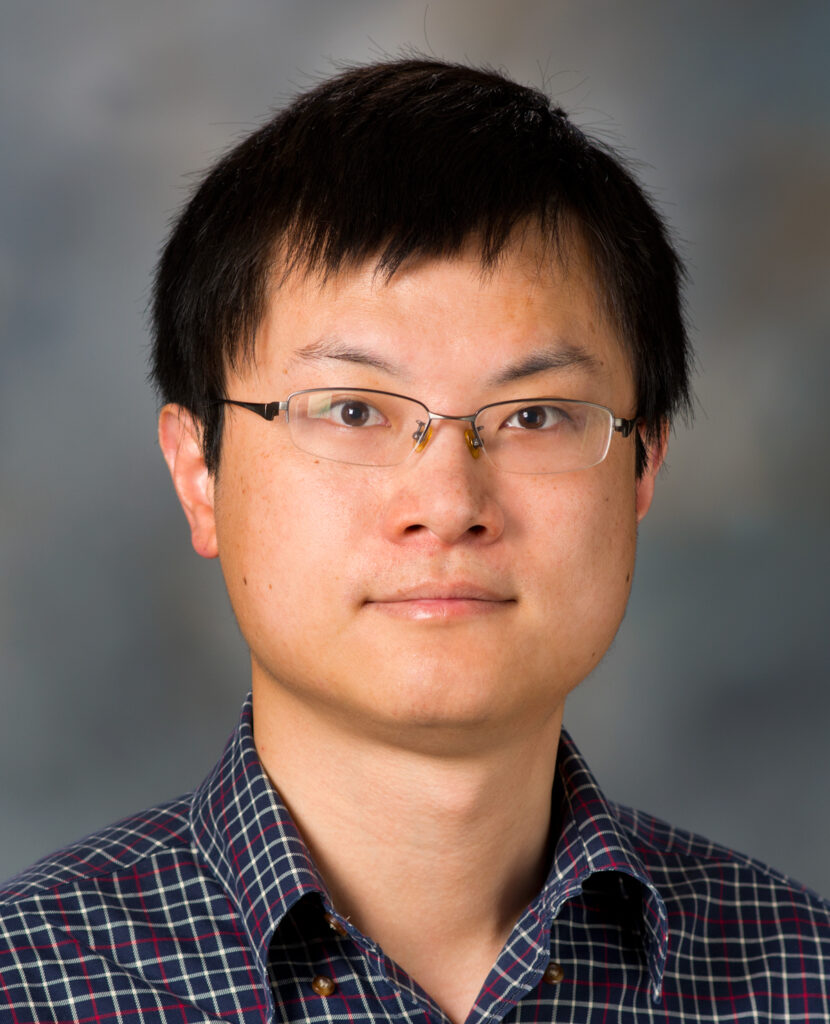
signaling networks underlying tissue homeostasis and organ size control as well as the role of their dysregulation in tumorigenesis
Our research investigates the molecular mechanisms governing cell and tissue growth. To achieve this goal, we focus on the Hippo signaling pathway, a key regulator of proliferation, regeneration, tissue homeostasis, and organ size. This pathway integrates diverse growth signals, including growth factors, energy status, cell-cell contact, and mechanical cues, to control gene expression in growth-related processes. Dysregulation of the Hippo pathway is frequently linked to human diseases, making it a critical therapeutic target.
We aim to characterize the molecular architecture of the Hippo kinase cascade, elucidate how diverse growth signals converge on Hippo pathway components, and systematically map its regulatory networks.
In addition, we employ proteomic approaches to define protein-protein interaction networks for other key signaling pathways and protein families involved in growth control and cancer with a particular emphasis on their crosstalk with the Hippo pathway. We anticipate that these studies will provide new insights into the molecular basis of organ size control and cancer development.
Recent Publications
(Complete list of published work: https://www.ncbi.nlm.nih.gov/myncbi/wenqi.wang.1/bibliography/public/)
- Han H#, Huang Z, Xu C, Seo G, An J, Yang B, Liu Y, Lan T, Yan J, Ren S, Xu Y, Xiao D, Yan JK, Ahn C, Fishman DA, Meng Z, Guan KL, Qi R, Luo R#, Wang W#. Functional annotation of the Hippo pathway somatic mutations in human cancers. Nature Communications. 2024 Nov 21;15(1):10106. doi: 10.1038/s41467-024-54480-y. PMID: 39572544
- Seo G, Yu C, Han H, Xing L, Kattan RE, An J, Kizhedathu A, Yang B, Luo A, Buckle AL, Tifrea D, Edwards R, Huang L, Ju HQ#, Wang W#. The Hippo pathway noncanonically drives autophagy and cell survival in response to energy stress. Molecular Cell. 2023 Aug 17:S1097-2765(23)00562-2. doi: 10.1016/j.molcel.2023.07.019. PMID: 37595580
- Han H, Nakaoka HJ, Hofmann L, Zhou JJ, Yu C, Zeng L, Nan J, Seo G, Vargas RE, Yang B, Qi R, Bardwell L, Fishman DA, Cho KWY, Huang L, Luo R, Warrior R#, Wang W#. The Hippo pathway kinases LATS1 and LATS2 attenuate cellular responses to heavy metals through phosphorylating MTF1. Nature Cell Biology. 2022 Jan 13. doi: 10.1038/s41556-021-00813-8. PMID: 35027733.
- Seo G, Han H, Vargas RE, Yang B, Li X#, Wang W#. MAP4K Interactome Reveals STRN4 as a Key STRIPAK Complex Component in Hippo Pathway Regulation. Cell Reports. 2020 Jul 7;32(1):107860. doi: 10.1016/j.celrep.2020.107860.PMID: 32640226
- Vargas RE, Duong VT, Han H, Ta AP, Chen Y, Zhao S, Yang B, Seo G, Chuc K, Oh S, El Ali A, Razorenova OV, Chen J#, Luo R#, Li X#, Wang W#. Elucidation of WW domain ligand binding specificities in the Hippo pathway reveals STXBP4 as YAP inhibitor. EMBO Journal. 2019 Nov 29:e102406. doi: 10.15252/embj.2019102406. PMID:31782549.
- Han H, Qi R, Zhou JJ, Ta AP, Yang B, Nakaoka HJ, Seo G, Guan KL, Luo R, Wang W. Regulation of the Hippo Pathway by Phosphatidic Acid-Mediated Lipid-Protein Interaction. Molecular Cell. 2018 Sep 13. pii: S1097-2765(18)30698-1. doi: 10.1016/j.molcel.2018.08.038. PMID: 30293781
- Li X, Han H, Zhou MT, Yang B, Ta AP, Li N, Chen J#, Wang W#. Proteomic Analysis of the Human Tankyrase Protein Interaction Network Reveals Its Role in Pexophagy. Cell Reports. 2017; 20(3):737-749.
- Wang W, Li N, Li X, Tran MK, Han X, Chen J. Tankyrase Inhibitors Target YAP by Stabilizing Angiomotin Family Proteins. Cell Reports. 2015; 13(3):524-532.
- Wang W, Xiao ZD, Li X, Aziz KE, Gan B, Johnson RL, Chen J. AMPK modulates Hippo pathway activity to regulate energy homeostasis. Nature Cell Biology. 2015; 17(4):490-9.
- Wang W*, Li X*, Lee M, Jun S, Aziz KE, Feng L, Tran MK, Li N, McCrea PD, Park JI, Chen J. FOXKs promote Wnt/β-catenin signaling by translocating DVL into the nucleus. Developmental Cell. 2015; 32(6):707-18.
- Wang W*, Li X*, Huang J, Feng L, Dolinta KG, Chen J. Defining the protein-protein interaction network of the human hippo pathway. Mol Cell Proteomics. 2014; 13(1):119-31.
- Wang W, Huang J, Wang X, Yuan J, Li X, Feng L, Park JI, Chen J. PTPN14 is required for the density-dependent control of YAP1. Genes & Development. 2012; 26(17):1959-71.
- Wang W, Huang J, Chen J. Angiomotin-like proteins associate with and negatively regulate YAP1. Journal of Biological Chemistry. 2011; 286(6):4364-70.
Invited Reviews
- Seo G, Mckinley J, Wang W. MAP4K2 connects the Hippo pathway to autophagy in response to energy stress. Autophagy. 2023 Nov 8:1-3. doi: 10.1080/15548627.2023.2280876. PMID: 37937799
- Han H, Wang W. A tale of two Hippo pathway modules. EMBO Journal. 2023 Apr 19:e113970. doi: 10.15252/embj.2023113970. PMID: 37073568
- Seo G, Wang W. Putting a leash on Hippo. Nature Chemical Biology. 2022 Jul 4. doi: 10.1038/s41589-022-01066-8. Online ahead of print.PMID: 35788179
- Han H, Mahieu A, de Paula LD, Wang W. Functional interplay between the Hippo pathway and heavy metals. Mol Cell Oncol. 2022 Apr 9;9(1):2061297. doi: 10.1080/23723556.2022.2061297. eCollection 2022.PMID: 35434269
- Zhou Z, Yuan Z, Hong W, Wang W. Editorial: A Hippo’s View: From Molecular Basis to Translational Medicine. Front Cell Dev Biol. 2021 Jul 23;9:729155. doi: 10.3389/fcell.2021.729155. eCollection 2021.PMID: 34368170
- Vargas RE, Wang W. Significance of long non-coding RNA AGPG for the metabolism of esophageal cancer. Cancer Commun (Lond). 2020 May 25. doi: 10.1002/cac2.12035. PMID: 32449319
- Han H, Vargas R, Seo G, Wang W. Phosphatidic acid: a lipid regulator of the Hippo pathway. Mol Cell Oncol. 2018 Dec 30. https://doi.org/10.1080/23723556.2018.1558683
